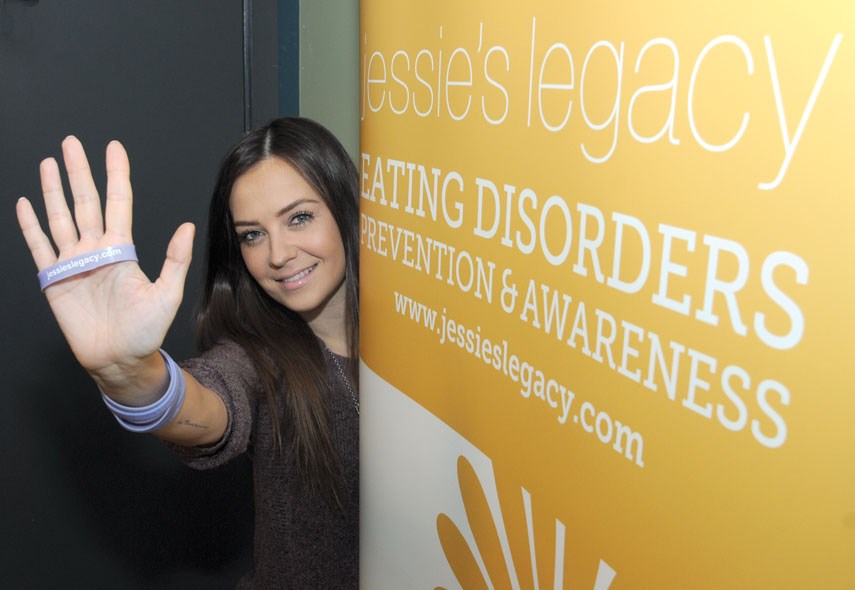A quick online search of the #CleanEating hashtag produces hundreds of thousands of results – a sea of people posting pictures of their perfectly positioned, healthy-looking fare washed over in splendid sepia tones.
But could our cultural obsession with healthy or “clean” eating be doing more harm than good?
That’s partly what this year’s Provincial Eating Disorders Awareness Week campaign, running Feb. 1-7, intends to explore with its focus on orthorexia, defined as an unhealthy obsession with eating only “clean” healthy food to the point that it can negatively impact one’s health and emotional well-being.
“We thought that was a very important conversation to have, especially in the Lower Mainland. We’re such a health-focused city,” said Joanna Zelichowska, program manager of Jessie’s Legacy, a North Vancouver-based program that’s part of Family Services of the North Shore.
But, she added, obsessing too much on healthy eating – however, that’s defined by the individual – could lead some people down a path that’s anything but healthy, and could in fact lead some people to develop an actual clinical eating disorder, such as anorexia nervosa or bulimia nervosa.
“That’s why we really want to raise awareness about this because it’s something that could be a risk factor for actually experiencing a clinical eating disorder,” she said.
“When can we start to recognize what’s healthy and what’s actually starting to become obsessive and harmful?”
Zelichowska, who is a clinical counsellor in addition to managing Jessie’s Legacy, said that clean healthy eating can become a potentially harmful obsession for some people when it looks to be significantly altering or changing
their lives.
“That might mean that, for example, you’re not able to eat a meal that somebody else has prepared for you, or at a restaurant -- so without knowing exactly what went into it some people might become really particular about certain kinds of nutrients, or avoid certain things,” she said.
“It all kind of begins with the goal of health, but it becomes an obsession where people might be then restricting their intake and not eating enough.”
In other words, when food or the act of eating starts to affect a person’s socializing with others, their relationships, or their work, it might be time to take a step back.
The annual Provincial Eating Disorders Awareness Week is a B.C.-wide effort to raise awareness around prevention and early intervention when it comes to eating disorders, with the goal of increasing media literacy, resiliency, building healthy body image and self-esteem, noted a press release from Jessie’s Legacy.
The provincial initiative is led by the Jessie’s Legacy eating disorders prevention program, which was started in honour of Jessie Alexander, who was a North Shore women who took her own life after a long battle with disordered eating and depression.
On Feb. 1, the public is encouraged to wear purple to show support for the pervasive issue of disordered eating, as well as Jessie’s Legacy’s purple “Love Our Bodies Love Ourselves” wristbands.
“We’ll be encouraging people to wear purple, wear their wristbands, and post photos of themselves on social media, and we’ll be sharing that throughout the week -- starting that conversation and raising awareness. That’s something that we do every year,” Zelichowska said.
She added that this year was particularly special because Jessie’s Legacy and a number of other similar institutions are hosting a free public event, called “Orthorexia – Can healthy eating go too far?” at the Roundhouse Community Centre in Vancouver Feb. 1 from 5 to 8 p.m.
The evening is slated to begin with a resource fair, followed by three speakers who will share their insights on orthorexia, Zelichowska explained.
In addition, 35 landmarks across B.C. are scheduled to light up with the colour purple in order to observe the kickoff of Eating Disorders Awareness Week.
Zelichowska said people are so bombarded with mixed messages about food these days that it’s not surprising we have trouble navigating what’s healthy and what’s not.
“It’s really hard to filter through all of that information and assess what’s going to work for you, what makes sense, and how do we get back to that more intuitive eating in light of having all of these messages thrown at us.”



